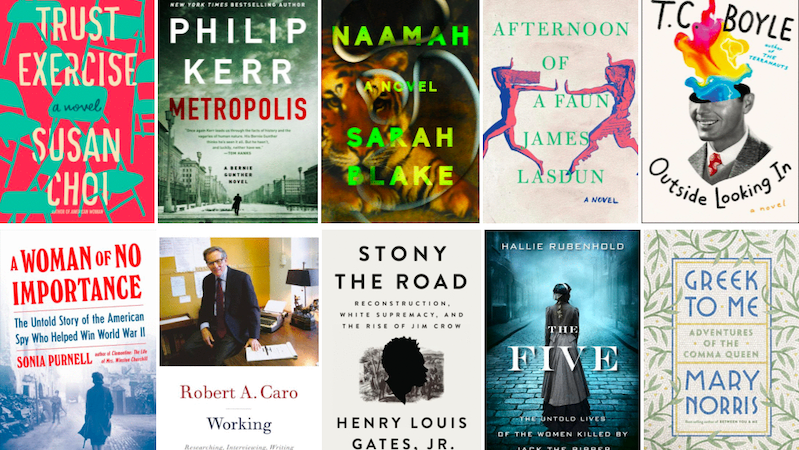
A tale of sex and psychological manipulation at a performing arts school, Robert Caro’s revealing recollections, and Philip Kerr’s final mystery all feature among the week’s best reviewed titles.
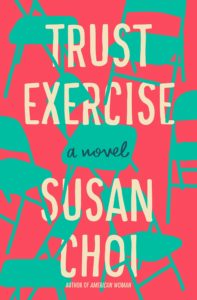
1. Trust Exercise by Susan Choi
8 Rave • 6 Positive • 1 Mixed • 1 Pan
“Choi’s new novel burns more brightly than anything she’s yet written. This psychologically acute novel enlists your heart as well as your mind. Zing will go certain taut strings in your chest … Choi gets the details right: the mix tapes, the perms, the smokers’ courtyards, the ‘Cats’ sweatshirts, the clove cigarettes, the ballet flats worn with jeans, the screenings of Rocky Horror, the clinking bottles of Bartles & Jaymes wine coolers … Choi builds her novel carefully, but it is packed with wild moments of grace and fear and abandon. She catches the way certain nights, when you are in high school, seem to last for a month—long enough to sustain entire arcs of one’s life … The plot fast-forwards about 15 years. Minor characters become major, damaged ones. I do not want to give too much of this transformation away, because I found the temporary estrangement that resulted to be delicious and, in its way, rather delicate.”
–Dwight Garner (The New York Times)
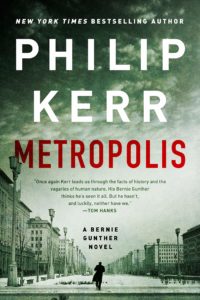
2. Metropolis by Philip Kerr
6 Rave • 5 Positive
“If you’ve never read one of Philip Kerr’s moody, historical procedurals, today is not too late to start … The author’s singular gifts for conveying the verbal, physical and moral textures of this vanished world are undiminished in Metropolis.The book offers similes worthy of Raymond Chandler. The cosmic ambivalence evoked by Philip Kerr can best be summed up in Gunther’s musing: ‘Really there was just light and darkness and some life in between, and you made of it what you could.'”
–Tom Nolan (The Wall Street Journal)
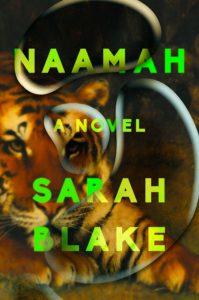
3. Naamah by Sarah Blake
5 Rave • 4 Positive
“Revelatory, ethereal and transfixing, Naamah cracks open the ancient tale of Noah to reveal a danger that exists in supposedly safe places, the force of a woman charged with maintaining the world’s tremulous balance and the depth of our mind’s eye … [Blake’s] language and storytelling style are as playful as they are sensual, as fluid and surreal as they are crisp and hyper-realistic … Naamah plucks a female character from myth and imbues her with sexuality, personality and intimacy, making her an altogether more modern hero—the kind of woman capable of giving a stern talking-to to a vengeful god.”
–Cat Acree (BookPage)

4. Afternoon of a Faun by James Lasdun
5 Rave • 2 Positive
“…Afternoon of a Faun… explore[s] uncomfortable corners of the male psyche with eerie clarity…[and] goes darker and further, with a timely and irresistibly unpleasant story that is sure to provoke passionate discussion … In an age of loud invective and binary solutions, there is something wonderful about Lasdun’s scrupulous recording of doubts and uncertainty. I like his unapologetic literariness and the unexpected way his books draw strength from artefacts of high culture … lingers after you have closed the book with a vividness that testifies to the compact virtues of the novella.”
–Marcel Theroux (The Guardian)
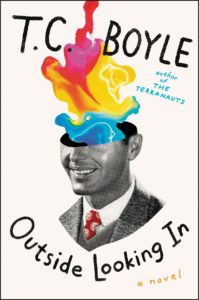
5. Outside Looking In by T.C. Boyle
8 Positive • 2 Mixed
“…we can feel Boyle’s censorious attitude pumping through these pages like a naloxone drip. That’s not to say that Outside Looking In is one long buzzkill, but it is a farce laced with tragedy: the story of a good man’s increasingly tortuous moral gymnastics … There’s plenty of zany comedy here—including a poo-flinging monkey and a sombrero from which Leary picks the names of sex partners like some kind of libidinous predecessor of the sorting hat in ‘Harry Potter.’ The humor, though, is tempered by the damage that Leary wreaks on Fitz and his family … This is a superbly paced novel that manages to feel simultaneously suspenseful and inevitable … Yes, it’s a drag, man, but any enlightenment that comes from a pill isn’t worth having. Better to get high on a good book.”
–Ron Charles (The Washington Post)
**

1. A Woman of No Importance: The Untold Story of the American Spy Who Helped Win World War II by Sonia Purnell
4 Rave • 6 Positive
“Purnell’s account of Hall’s hectic, amphetamine-fuelled exploits never falters. It recalls Caroline Moorehead’s wonderful book, Village of Secrets, about defiance of the Nazis in Vichy France, but has an added touch of Ben Macintyre’s brio … The erasures owe as much to Hall’s secretive and mystifying nature as to official censorship so it is a marvel that Purnell, who has previously written biographies of Boris Johnson and Clementine Churchill, has discovered so much. It is a pleasure to read a biography in which the author admires her subject so warmly. This might so easily have been a pernickety, fact-finding book, but instead it is a rousing tale of derring-do. Men, women and tomboys will all enjoy the courage and initiative of Virginia Hall.”
–Richard Davenport Hines (The Times)

2. Working by Robert A. Caro
4 Rave • 4 Positive
“Working is an inspiring—and reading it as a journalist, honestly sometimes shame-inducing—window into the seemingly superhuman reporting, researching, writing, patience, and above all, will-power that have powered his reinvention of the political biography and history genre … Even if he or she isn’t planning on spending decades turning over every single detail of a subject’s life, a reporter, author, or researcher will come away from this book armed with several new approaches to fact-finding and writing … Robert Caro’s chapters are unique. Often appearing to veer wildly off the course of his books’ primary topics, they function as mini-biographies of well-known political figures.”
–Scott Detrow (NPR)
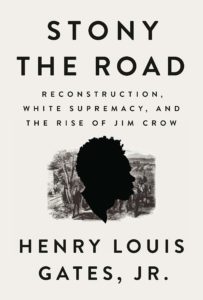
3. Stony the Road: Reconstruction, White Supremacy, and the Rise of Jim Crow by Henry Louis Gates Jr.
4 Rave • 3 Positive
“…brilliant … Gates’ book is a fascinating social and intellectual history of the time between Reconstruction and the rise of the Jim Crow period of American history. It’s an absorbing and necessary look at an era in which the hard-fought gains of African-Americans were rolled back by embittered Southern whites—an era that, in some ways, has never really ended … It will come as no surprise to anyone who’s familiar with Gates’ impressive body of work that Stony the Road is every bit as fascinating as the author’s previous books. It’s a work of history, but a living one … Gates’ analysis is predictably brilliant, but he’s also just a joy to read. He writes in long sentences that don’t ramble, but rather draw readers in and keep them engaged; his gift at crafting elegant prose serves to complement the persuasive arguments he makes in his book.”
–Michael Schaub (NPR)

4. The Five: The Untold Lives of the Women Killed by Jack the Ripper by Hallie Rubenhold
3 Rave • 3 Positive
“Rubenhold resists rehashing the sensationalist details of the slayings and instead concentrates on these so-called ‘canonical five’ … A social historian and a historical novelist, Rubenhold is a painstaking researcher and a lucid wordsmith. Without lionizing or sentimentalizing her subjects, she writes of these women with clarity and compassion, pointing out that much of what we think we know comes wrapped in the condescension of officials who were ‘male, authoritarian, and middle-class’ … Rubenhold’s The Five eloquently makes the case that while we will likely never know the identity of Jack the Ripper himself, we can and should understand and respect the identities of the individuals whose lives he took.”
–Kathleen Rooney (The Minneapolis Star Tribune)
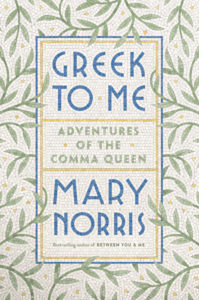
5. Greek to Me: Adventures of the Comma Queen by Mary Norris
2 Rave • 3 Positive • 1 Mixed
“[Norris’s] enthusiasm is infectious, whether for diphthongs, mythology, ancient ruins or the sea … Norris’ vibrant prose flies off the page, and the breadth of her material set my head spinning at times. Still, she brings it all together with insight and wisdom, giving us an understanding of the ‘larger world out there’ and, as she writes, ‘different ways of saying things, hearing things, seeing things.’ ”
–Elfrieda Abbe (The Minneapolis Star Tribune)

